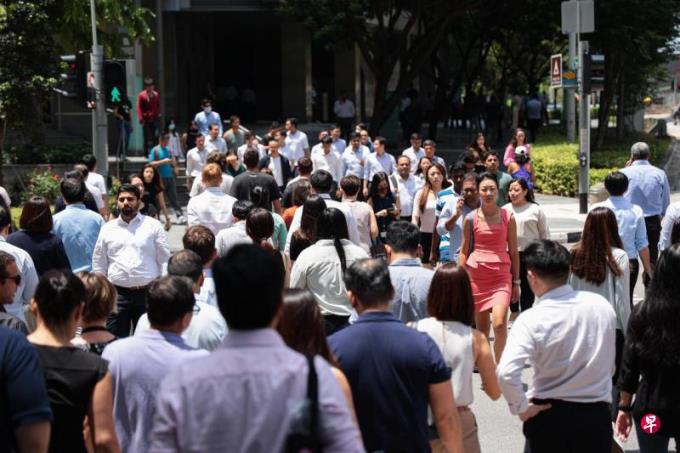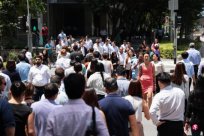
At the beginning of the founding of Singapore, the government implemented bilingual education policies, and bilingual education policies are the cornerstone of the founding of Singapore.Since a Jiazi, English has become the common language of the people of all ethnic groups across the country, and it is also the administrative term of the government and public and private institutions.Compared with Malay, Chinese, and Tamil, English belongs to the top language.
On the other hand, from the perspective of the statistical trend of the census, from the 40 years from 1980 to 2020, Chinese residents with English as the main term increased from 7.8%to 47.6%; the use of Chinese from 10.2%increasedBy 40.2%, the Chinese dialects have plummeted. The Chinese residents who use dialects most often at home have been reduced from 81.4%in 1980 to 11.8%in 2020. The industry has endangered.Therefore, social linguists expect that Singapore will become the first Asian country to use English as the main language.
When my academic work published in Singapore (Professor Guo Zhenyu and Associate Professor Luo Futang co -authored and unified: Singapore's language and society), I saw this "expectation", my heart was very contradictory.In terms of emotions, I don't want "expectations" to become a reality, but the situation is stronger than people, and the "expectations" of experts' "expectations" are not targeted.
Recently, the lecture of Prime Minister Huang Xuncai, the fourth -generation leader of Singapore at the National Day Mass Conference, was refreshing, and the stones hanging in his heart finally fell to the ground.
In a Chinese speech in Chinese, Premier Huang specifically guarantees the bilingual policy that Chinese News Agency cares about: "To retain the spiritual appearance and traditional values of Asians", strengthening his mother tongue is still the basic national policy.He then pointed out that although the bilingual policy has been implemented for decades, it has cultivated generations of talents, but various signs show that Singapore's bilingual advantages are weakening and the level of mother tongue has deteriorated.In the long run, Singapore is inevitable as the characteristics of Asian society, and the harmonious foundation of diverse races and culture is difficult.
"Bilingual advantage is weakening, and the level of mother tongue is getting worse" still watching it?No, you must act immediately.What is good?Premier Huang put forward some measures that he particularly emphasized that he will continue to support Chinese society, support Chinese people to improve bilingual ability, encourage Chinese people to use Chinese Chinese from an early age, relax the conditions of high -level Chinese language, and cultivate more local talents who are proficient in Chinese.Lianhe Zaobao said that this is undoubtedly a long -awaited peace pill for the long -awaited pills.
When it comes to specific measures, the Morning Post Society mentioned that Singapore should build a language landscape, that is, various official notices, signs, street signs, signboards, and public places use four official languages to allow young people to bathe in mother tongue moisturizing objectsIn a silent environment, the importance of mother tongue is subtlely realized, and the reality of Singapore really feels Singapore as Asian society.
History proves that bilingual policies have made Singapore's unique tree in Asia in Asia and standing chicken groups today. If single -speaking, it will really become the first English country in Asia.Ping, Lion City followed into a cultural island.
Emphasizing the importance of mother tongue learning must be sincerely recognized and cooperated with parents.A few days ago, the author saw in the Morning Post news that Li Shuhui, a Chinese teacher Li Shuhui, who has won the Yinsong Award for 18 years, won the Yinsong Award, and is responsible for teaching the primary three to primary and sixth graders, said, "Parents speak Chinese at home,One of the best speak English. When a child speaks Chinese when he was a child, there is no conflict with English English. The most important thing is to make children like language (Chinese). "
Li Shuhui's experience is worthy of the attention of Chinese parents in Singapore.Professor Wang Hanyu, director of the Chinese School of Chinese University of China, and Dr. Bai Juan, Beijing Chinese Institute of Chinese Academy of Chinese University of China, through questionnaire surveys and analyzes the status quo of the Chinese inheritance in Singapore, proposed the "four one" and "four one" specific and targeted suggestions:
One, a parent, a language.A parent is responsible for telling a language to the child. For example, if the father speaks English, the mother speaks Chinese, and the child will automatically convert the language code when talking to his parents.
Two, a place, a language.Parents stipulate that children speak different languages in different places. For example, when speaking English in school, they must talk in Chinese as soon as they return home. This can ensure that the child can use bilingual every day to avoid the phenomenon of a certain language.
Three, one time, a language.Family members can also speak different languages in different times, such as saying English during the day, watching TV or chatting at night.
Four, an activity, a language.For example, use English while learning science, and speak Chinese when learning liberal arts or sports activities.(Research on the second -generation ancestral language of the second generation of Chinese, pages 654, Jinan University Press, December 2023)
Li Shuhui has experienced the experience of Chinese teaching in 18 years, and the suggestions made from the Chinese families in Singapore coincide with the first suggestions made by the two experts mentioned above.
Huang Xuncai's National Day speech pointed out the prospect of light for the survival and development of the mother tongue of Singapore. It is reasonable to believe that Singapore will not become the first English country in Asia.
The author is a senior Chinese worker



